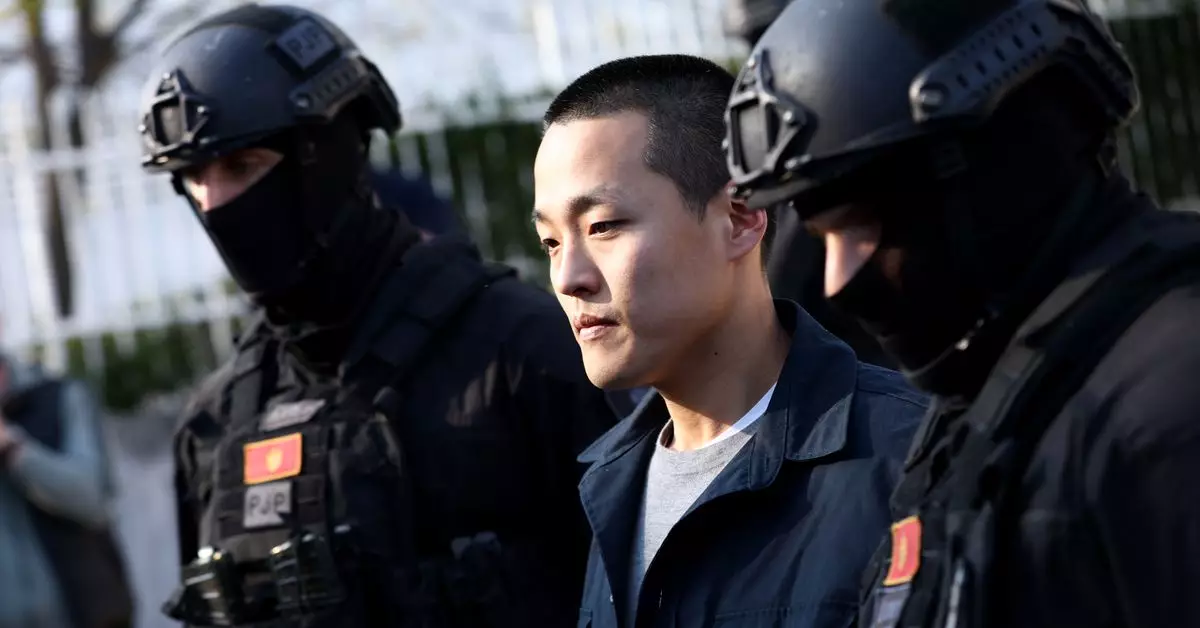Do Kwon, former co-founder of Terraform Labs, is being extradited to the United States from Montenegro to face a series of federal fraud charges. This decision arrives over a year after Kwon’s arrest, highlighting an extensive international legal entanglement. Kwon is already embroiled in legal troubles in both the U.S. and South Korea due to the collapse of the TerraUSD stablecoin and its sister token, Luna. The demise of these cryptocurrencies in 2022 resulted in staggering losses estimated at $40 billion, affecting countless investors and shaking the crypto market to its core.
The announcement from Montenegro’s Ministry of Justice confirms that the legal criteria for extradition have been met, supporting the U.S. authorities’ request. The convoluted legal situation is compounded by the fact that Montenegro had previously ruled in favor of extraditing Kwon to South Korea. This double-edged situation raises questions about the efficiency of international law, particularly as nations scramble to control the emerging and interconnected world of cryptocurrencies. The Ministry did not specify the timeline for Kwon’s extradition, leaving uncertainty prevalent regarding his future legal battles.
Kwon’s legal troubles are extensive, with U.S. federal prosecutors accusing him of multiple crimes, including wire fraud and securities fraud. The implications of these accusations extend far beyond Kwon himself, touching on the broader issues of investor trust and regulatory oversight in a sector that has often been criticized for its lack of accountability. Moreover, Kwon’s company has already consented to a hefty settlement of over $4.5 billion with the Securities and Exchange Commission, further underscoring the scale of financial malpractice involved in this case.
The fallout from the TerraUSD and Luna disaster serves as a critical example of the vulnerabilities present in a largely unregulated market. Investors, many of whom were enticed by the promise of quick returns, faced devastating losses when the values of these tokens plummeted. The Kwon case highlights the urgent need for more robust regulatory frameworks to protect retail investors in the cryptocurrency space, which remains largely speculative and fraught with risk. The perception of risk in cryptocurrency investments is shifting, and harder scrutiny is emerging as regulatory bodies react to high-profile failures.
As the extradition process unfolds, the Do Kwon saga stands as a cautionary tale for both investors and innovators in the cryptocurrency market. It raises pressing questions about accountability, corporate ethics, and the adequacy of legal frameworks in dealing with a fast-evolving financial landscape. As Kwon prepares to face U.S. authorities, the global finance community watches closely, awaiting the outcomes that could reshape the future of cryptocurrency markets and governance. Investors must remain vigilant as the lessons of accountability begin to ripple through the industry, urging them to prioritize due diligence and critical analysis over speculation.

